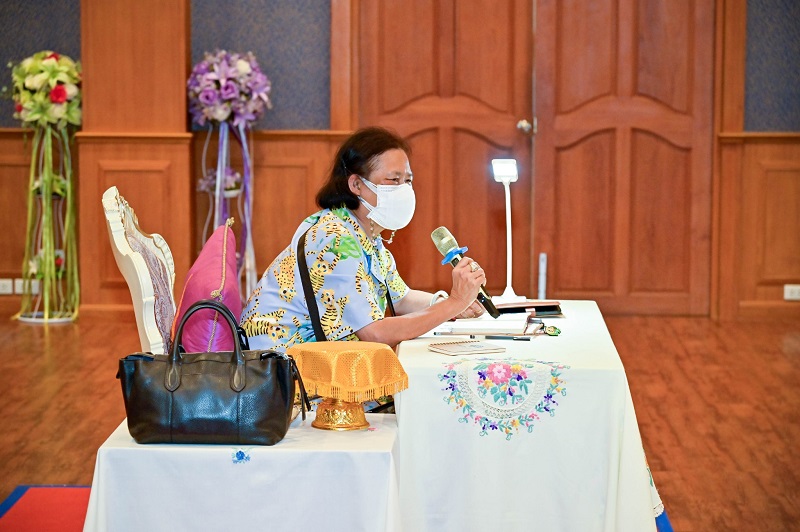- Home
- News
- Her Royal Highness Princess Maha Chakri Sirindhorn
- Her Royal Highness Princess Maha Chakri Sirindhorn Observes the Operation Progress of the King’s Royally Initiated Laem Pak Bia Environmental Research and Development Project (LERD)
Her Royal Highness Princess Maha Chakri Sirindhorn Observes the Operation Progress of the King’s Royally Initiated Laem Pak Bia Environmental Research and Development Project (LERD)

On 27 May 2022, Her Royal Highness Princess Maha Chakri Sirindhorn observed the operation progress of the King’s Royally Initiated Laem Pak Bia Environmental Research and Development Project (LERD), Baan Laem District, Phetchaburi Province.



On this occasion, Her Royal Highness transplanted the Kor Khor 43 rice in the paddy demonstration plot in which the treated wastewater and irrigation water are used for rice transplanting. After that, Her Royal Highness also observed the process of catching herbivorous fish raised in water treatment pond. The Nile fish, or herbivorous fish, is raised in this pond in order to control the algea. Then, Her Royal Highness observed the 830-metre-long mangrove forest, which grows naturally from the treated water of this Project. The mangrove forest is also regarded as a nursery for aquatic animals. In addition, the deposition of sediments in the mangrove area has created the additional land covering an area of more than 3000 rai (120 acres).









The King’s Royally Initiated Laem Pak Bia Environmental Research and Development Project (LERD) was established in 1990 as to the initiation of His Majesty King Bhumibol Adulyadej the Great. The project aims to be a place for research and technology with an intention to solve such environmental problems as solid waste and wastewater, based on the concept of “nature by nature” method. The technologies and materials used here are simple and easy to practice so that the community and individuals can adopt, adapt and apply the operation from this project in their contexts. The solid waste disposal system using simple technology according to the royal initiative has been implemented since 1990. There are 4 main “nature by nature” methods concerning the wastewater treatment, i.e., oxidation pond treatment, grass filtration system, constructed wetland system, and mangrove forest filtration system.






Since the beginning, the project has created more than 500 topics of scientific and social researches. The project has been visited by more than one million visitors. In addition, the project is also deemed as the most popular bird watching location and ecotourism site in Thailand, in which more than 250 kinds of mangrove birds can be found.


